Search Results
Showing results 41 to 60 of 60
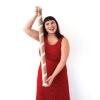
Make Your Own Rainstick
Source Institutions
In this activity, leaners build their very own rainsticks, an instrument filled with pebbles and seeds that create sounds like falling rain. Save costs by using material found around the home.
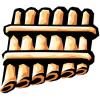
Straw Pipes
Source Institutions
Learners build pan pipes out of drinking straws by cutting them to different lengths. Then, learners make music by blowing across the straws and playing some well-known songs.
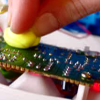
Circuit Bending with Play-Doh
Source Institutions
Break open that used musical toy and squish some Play-Doh over the circuit boards, and you will hear some weird and distorted sounds the manufacturer never intended!
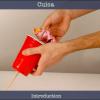
Cuica (Laughing Cup): Make a Musical Instrument
Source Institutions
In this activity, you'll use a paper cup, a piece of cloth, and some string to make a musical instrument called a cuica (pronounced KWEE-kah).
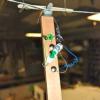
Canjo
Source Institutions
In this activity, learners explore sound by constructing their very own banjo out of a coffee can. Learners experiment with the canjo to change the instrument's pitch and timbre.
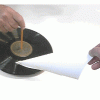
Groovy Sounds
Source Institutions
In this activity related to music and sound vibrations, learners make a phonograph or record player out of simple materials. First, learners assemble the turntable, arm, and sound cone.
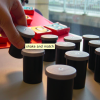
Shake and Match
Source Institutions
In this activity, learners create a hearing based memory game that they can share with friends.
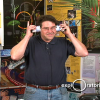
Make a Speaker: A Coil, a Magnet, and Thou
Source Institutions
Make your own simple speaker so you can listen to your favorite radio station. Just wind a coil, attach it to a piece of cardboard or Styrofoam, hold a magnet nearby, and listen.

Audio Boggle: Make a Sound Track
Source Institutions
Audio Boggle is an activity that lets you listen to a track (that you make yourself) and see what you can hear!
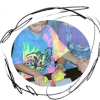
Musical Sculpting Machine: Squeeze Play-Doh to Make Music
Source Institutions
Play-Doh is conductive! Use the semiconductive qualities of Play-Doh to make your own squeezable instrument. Pico Cricket is required.
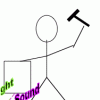
Lagging Sound
Source Institutions
In this group activity, learners see and hear the speed of sound. A learner designated the "gonger" hits a gong, once every second, as the rest of the group watches and listens from a distance.
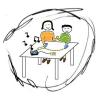
Making Circuits
Source Institutions
In this activity, learners explore electricity and conductivity to find that many things conduct electricity including copper, pencil lead, fruit, play-doh, and even people!
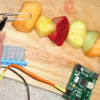
Fruit Xylophone: Fruit Salad Instrument of the Future!
Source Institutions
This is a perfect summertime lunch activity! Pico Cricket is required (micro controller). First, get a bunch of cut up fruit, line them up, then plug a piece of fruit with a Pico Cricket sensor clip.

String Thing
Source Institutions
String Thing is an interactive online game in which learners change a virtual string's tension, length, and gauge to create different musical pitches.
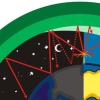
AM in the PM
Source Institutions
In this activity, learners will listen to as many radio stations as possible to discover that AM radio signals can travel many hundreds of miles at night.
Catch the Beat
Source Institutions
This is an activity about music, movement, and math. Learners will start a rhythm pattern with 2, 3, or 4 beats. For instance, tap your foot, jump, clap, repeat.
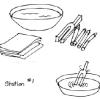
Good Vibrations
Source Institutions
This lesson (on pages 15-24 of PDF) explores how sound is caused by vibrating objects. It explains that we hear by feeling vibrations passing through the air.
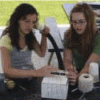
Headphone Helper
Source Institutions
In this design challenge activity, learners add headphones to a previously built instrument (see "Build a Band" activity) to make it easier to hear.
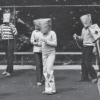
Sound Off!
Source Institutions
This activity includes several games about animal sounds. Using their sense of hearing and communicating with various kinds of noisemakers, learners role-play predator and prey.
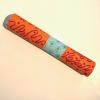
Let's Make Music
Source Institutions
In this activity, learners will create their own percussion instrument with recycled materials. Learners will explore design, fabrication, cause and effect and sound through this activity.
